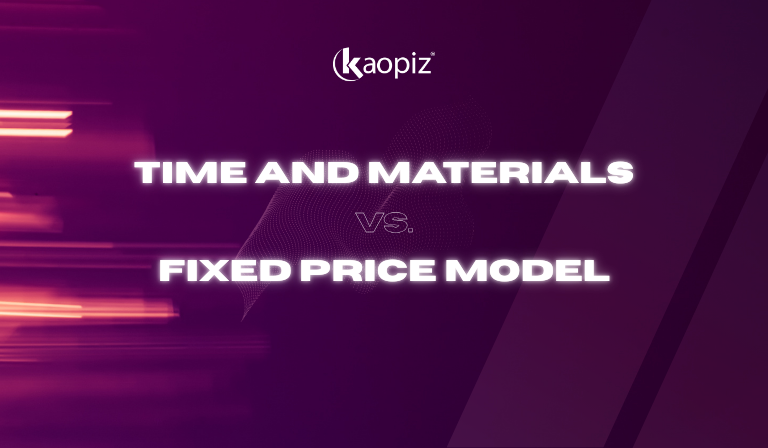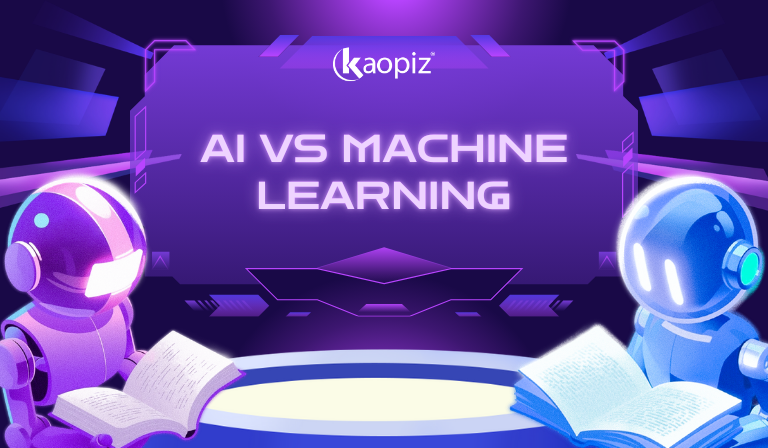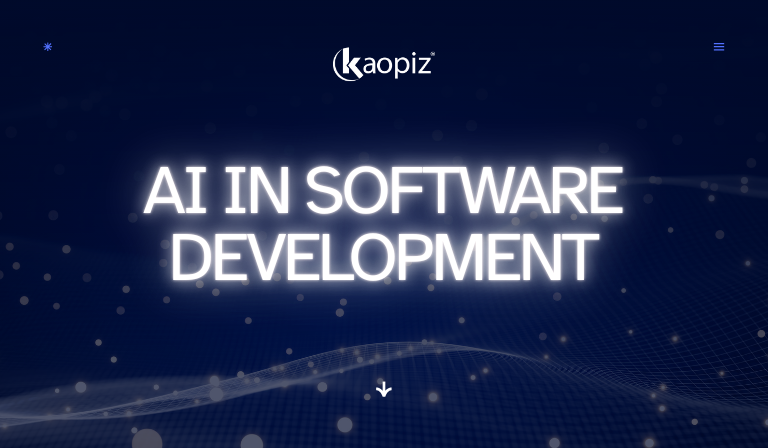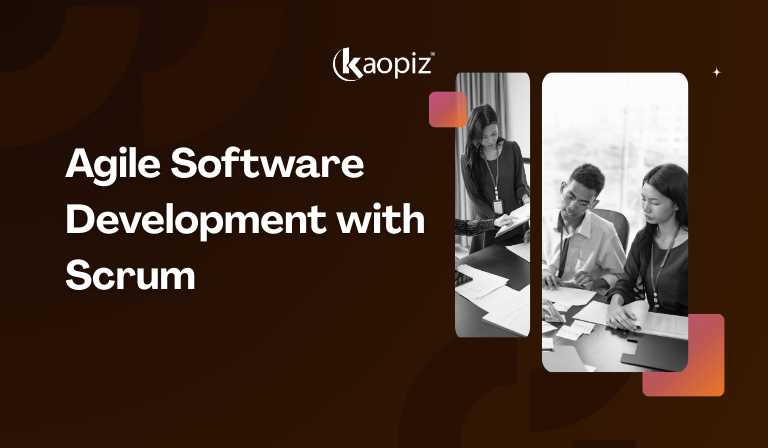Retail Software Development in Singapore: Types, Benefits, Costs & Offshore Opportunities in 2025
The retail industry in Singapore is undergoing one of its most significant transformations in decades. From luxury boutiques along Orchard Road to nationwide e-commerce platforms, retailers are racing to modernize operations, enhance customer experience, and stay resilient in a highly competitive market. At the heart of this transformation lies in retail software development — the strategic creation of digital tools that power smarter, faster, and more connected retail businesses.
This article explores the key aspects of retail software development in Singapore in 2025 — its types, benefits, costs, and the emerging opportunities for local retailers to innovate faster and more cost-effectively through AI-powered solutions and offshore software development partnerships.
Table of Contents
- What Is Retail Software Development?
- How Is AI Changing Retail Software Development in Singapore?
- Common Types and Examples of Retail Software
- How Much Does It Cost to Develop Retail Software in Singapore?
- Why Do Singapore Businesses Choose Offshore Development Partners?
- How to Build Retail Software: Step-by-Step Guide
- Key Features of Custom Retail Software Development
- How to Choose the Right Retail Software Development Partner
- Why Partner with Kaopiz for Retail Software Development
- Future of IT Staffing and Offshore Collaboration in 2025-2030
- Conclusion
- FAQs
What Is Retail Software Development?
Retail software development is the process of creating digital systems that help retailers manage operations, sales, and customer engagement more efficiently. It includes solutions like point-of-sale (POS) systems, inventory management, CRM, e-commerce, and analytics tools — all designed to improve business performance and customer experience.

Retail software development is not limited to off-the-shelf solutions. Many businesses today pursue custom retail software development, tailored to their unique workflows and goals. This approach allows retailers to embed features like dynamic pricing, localized payment systems, loyalty integrations, or AI-driven analytics that fit the Singapore market’s nuances.
How Is AI Changing Retail Software Development in Singapore?
Artificial intelligence is redefining the capabilities of modern retail software in Singapore. In 2025, AI in e-commerce drives personalization, real-time inventory management, and frictionless checkout, enabling retailers to deliver seamless, data-driven experiences across channels. Recent insights show that 49% of Singapore shoppers have used AI-powered assistants, and omnichannel sales now account for more than half of total retail spend.
Performance metrics further highlight this digital shift — with average conversion rates at 1.6%, cart abandonment at 82.6%, and average order values reaching US $157. Retailers that implement AI solutions often see measurable returns within 6–12 months, demonstrating how automation and predictive analytics directly translate to operational efficiency and revenue growth.
Common Types and Examples of Retail Software
Software for retail stores comes in many forms, each designed to solve specific challenges across the sales, operations, and customer experience spectrum. Below are the most common types and retail software examples that Singapore businesses are adopting to stay competitive in 2025.
Main Categories
Software for retail business in Singapore covers a wide range of solutions designed to optimize every stage of the retail process — from sales and inventory to customer engagement and analytics. Below are the main categories of retail software most commonly used by Singapore businesses in 2025.
- POS systems (sales & billing): POS systems handle transactions, invoicing, and payments while syncing with inventory and CRM tools for real-time sales tracking. In Singapore, cloud-based and mobile POS solutions support omnichannel shopping and contactless payments.
- Inventory & warehouse management: These tools automate stock tracking and order management, giving retailers instant visibility of inventory. AI-driven forecasting helps predict demand and prevent stock issues in Singapore’s fast-moving retail sector.
- CRM and loyalty software: CRM and loyalty platforms centralize customer data to personalize marketing and rewards. Localized programs and mobile wallet integrations are key for Singapore’s digital-first consumers.
- E-commerce & omnichannel platforms: E-commerce platforms connect online and offline channels, supporting click-and-collect, same-day delivery, and consistent pricing — essential for seamless customer experiences.
- Analytics and reporting tools: Analytics software turns sales and customer data into insights, tracking KPIs like conversion and profitability. AI-powered dashboards help retailers optimize pricing, promotions, and performance in real time.
Off-the-Shelf vs Custom Retail Software Development
Retailers in Singapore can choose between off-the-shelf solutions and custom-built software, depending on their size, goals, and growth plans. Each option has clear strengths and trade-offs:
| Aspect | Off-the-shelf Retail Software | Custom Retail Software Development |
|---|---|---|
| Implementation Time | Fast to deploy — ready-made solutions can be used almost immediately. | Longer development cycle — requires planning, design, and testing. |
| Cost | Lower initial cost; subscription or one-time license fee. | Higher upfront investment but delivers better long-term ROI. |
| Flexibility | Limited customization; fixed features and workflows. | Fully tailored to your business processes and goals. |
| Integration | May require workarounds to connect with existing systems. | Seamless integration with POS, CRM, ERP, and other enterprise tools. |
| Scalability | Suitable for small to mid-sized retailers. | Scales with growth; ideal for expanding or multi-channel retailers. |
| Localization | Generic features; may lack support for local payments or tax rules. | Can be localized for Singapore’s market, language, and compliance standards. |
| Maintenance & Support | Vendor-controlled updates; limited influence over product roadmap. | Custom support and upgrades aligned with business priorities. |
| Innovation Potential | Basic automation and analytics capabilities. | Enables advanced features like AI-driven insights and omnichannel automation. |
Many retailers in Singapore choose a hybrid approach — combining the speed of off-the-shelf platforms with custom modules built. This ensures flexibility, faster implementation, and technology alignment with long-term retail goals.
How Much Does It Cost to Develop Retail Software in Singapore?
The cost of retail software development in Singapore varies widely based on project scope, features, and level of customization. On average, a small-to-mid-sized retail solution such as a POS or inventory system can range from SGD 25,000 to SGD 80,000, while more complex custom platforms with e-commerce, analytics, or AI capabilities may cost SGD 100,000 to SGD 300,000+.
Key factors that influence pricing include:
- Software complexity – the number of modules (POS, CRM, e-commerce, AI, etc.) and integration requirements.
- Design and user experience (UX) – intuitive, branded interfaces may increase design costs but improve adoption.
- Technology stack – cloud-based and AI-driven systems generally require higher investment.
- Development approach – choosing between a local vendor, offshore team, or hybrid model affects labor rates.
- Maintenance and scalability – long-term updates, security, and feature enhancements add to total cost of ownership.
Why Do Singapore Businesses Choose Offshore Development Partners?
Singapore retailtech adoption is highly competitive, but local software development costs and talent shortages often push businesses to explore offshore development partnerships. By collaborating with trusted offshore software development vendors in Singapore, retailers can accelerate innovation while keeping costs under control — a critical balance in 2025’s dynamic market.
Key reasons why Singapore retailers go offshore include:
- Cost efficiency: Offshore development — especially in nearby tech hubs like Vietnam — can reduce project costs by 30–50% compared to local rates, without compromising quality.
- Access to specialized talent: Offshore teams often have deep expertise in retail software, AI, cloud, and omnichannel solutions, helping businesses scale faster.
- Faster time-to-market: With larger development capacity, offshore vendors can shorten release cycles and handle multiple modules in parallel.
- Scalability and flexibility: Retailers can easily adjust team size or skill sets based on project phases or seasonal demand.
- Focus on core business: Outsourcing development lets in-house teams focus on strategy, marketing, and operations while experts handle the technical side.
Many Singapore businesses choose retail development companies like Kaopiz, an experienced IT outsourcing company in Singapore with offshore development centers in Vietnam. This model combines local project management and consultation with offshore execution — ensuring seamless communication, cost savings, and high-quality software delivery.
How to Build Retail Software: Step-by-Step Guide
Developing effective software in retail requires more than just coding — it’s a structured process that aligns business goals, user experience, and technology. Below is a step-by-step framework most Singapore retailers follow to ensure success.

Step 1: Define Business Objectives and Requirements
Start by clarifying what the software for retail industry needs to achieve — increased sales, better inventory control, or improved customer engagement. Identify core pain points, target users, required features, and success metrics (KPIs). This foundation helps shape the project scope, budget, and timeline.
Step 2: Conduct Market and Technology Research
Analyze market trends, competitor systems, and emerging retail technologies like AI, automation, and omnichannel commerce. This step ensures your solution is modern, scalable, and aligned with Singapore’s digital retail standards.
Step 3: Choose the Right Development Vendor
Select a partner with proven expertise in e-commerce software development and a strong understanding of the Singapore market. Evaluate portfolios, technical capabilities, and communication workflows. Many retailers opt for hybrid models — partnering with companies like Kaopiz, which combine local consultation with offshore delivery efficiency.
Step 4: Design and Prototype
Create wireframes and UI/UX mockups that visualize user flows for customers and staff. A functional prototype helps validate ideas early and gather feedback before full-scale development. Prioritize simplicity, speed, and seamless experience across desktop, mobile, and in-store devices.
Step 5: Develop and Integrate Core Modules
Develop key components such as POS, inventory, CRM, and analytics. Integration is critical — systems must communicate in real time for unified data and reporting. Agile methodologies are recommended to deliver iterative updates and adapt quickly to business feedback.
Step 6: Test, Deploy, and Train
Conduct thorough testing for performance, security, and usability. Once deployed, provide hands-on training for store staff and administrators to ensure smooth adoption. Continuous feedback during rollout helps fine-tune the system for day-to-day operations.
Step 7: Maintain and Scale
Post-launch maintenance is essential. Monitor performance, fix bugs, and roll out feature enhancements based on user behavior and analytics. As your retail operations expand, scale the software to support new outlets, sales channels, or regional markets.
Key Features of Custom Retail Software Development
Custom retail software gives businesses the flexibility to design solutions that fit their exact workflows, market, and customer expectations. For Singapore retailers, this approach ensures seamless integration with local payment systems, compliance with PDPA, and support for multilingual operations across Southeast Asia.
Essential features include:
- Omnichannel integration: Connects online, mobile, and in-store systems for consistent pricing, promotions, and inventory visibility.
- AI-driven analytics: Uses predictive models to forecast demand, personalize recommendations, and optimize pricing strategies.
- Inventory automation: Real-time stock tracking, low-stock alerts, and smart replenishment to prevent shortages or overstocking.
- Customer insights & loyalty: Centralized CRM with purchase history, preferences, and rewards programs to boost retention.
- Cloud-based scalability: Enables secure access from anywhere, supports multi-store operations, and simplifies updates.
- Secure payment and compliance: Built-in protection for transactions and data privacy aligned with Singapore’s PDPA and PCI DSS standards.
- Mobile-first experience: Responsive interfaces for staff and customers — from mobile checkout to delivery tracking.
- Custom integrations: Seamless connection with ERP, logistics, accounting, and marketing automation tools.
By incorporating these features, retailers can transform software into a growth engine — improving efficiency, customer engagement, and decision-making. Partners like Kaopiz help design these capabilities to match each retailer’s goals, blending innovation with operational reliability.
How to Choose the Right Retail Software Development Partner
Selecting the right technology partner can determine the success of your retail digital transformation. Beyond technical skills, the best partner understands your business goals, market nuances, and long-term vision — especially in Singapore’s competitive retail environment.
Key criteria to consider:
- Retail domain expertise: Choose a vendor experienced in retail software, not just general app development. Look for case studies involving POS, CRM, e-commerce, or AI in retail.
- Understanding of local markets: Ensure familiarity with Singapore’s payment gateways, tax rules, PDPA compliance, and multilingual customer expectations.
- Technical capabilities: The partner should be proficient in cloud architecture, mobile development, analytics, and integration with third-party tools.
- Scalability and flexibility: Verify that the vendor can scale teams or technologies as your retail operations expand.
- Communication and project management: Transparent reporting, agile processes, and English-language fluency are critical for cross-border collaboration.
- Security and compliance standards: Data protection, secure payment integration, and adherence to ISO or PCI DSS certifications are non-negotiable.
- Post-launch support: A reliable partner provides ongoing maintenance, updates, and technical assistance to ensure long-term stability.
Singapore retailers often find success with hybrid partners like Kaopiz, who combine local consulting expertise with offshore development teams in Vietnam. This model balances cost efficiency, technical depth, and cultural alignment — ideal for fast, high-quality retail software delivery.
Why Partner with Kaopiz for Retail Software Development
With over 11 years of experience, 700+ engineers, and offices in Vietnam, Japan, and Singapore, Kaopiz is one of the software development companies in Singapore. We have successfully delivered 1,000+ projects for more than 200 global clients, achieving a 98% client satisfaction rate — a testament to our consistent quality, reliability, and innovation.

Why retailers choose Kaopiz for retail software development services:
- Proven retail expertise: Kaopiz has implemented custom retail platforms, POS systems, and omnichannel e-commerce solutions for enterprises in Singapore and beyond, ensuring seamless integration and measurable ROI.
- AI and automation capabilities: Our in-house AI team develops intelligent modules such as demand forecasting, image recognition, and recommendation engines — enabling data-driven retail operations.
- Hybrid delivery model: With a local presence in Singapore and offshore development centers in Vietnam, Kaopiz offers a cost-efficient structure that can reduce development costs by 40–60% while maintaining enterprise-grade quality.
- Enterprise-grade quality and compliance: Certified in ISO 27001 and ISO 9001, and recognized as an AWS Advanced Consulting Partner, Kaopiz ensures every retail solution meets global security and performance standards.
- Long-term partnership mindset: From strategy and design to post-launch optimization, Kaopiz supports clients throughout their digital journey — building scalable systems that evolve with each retailer’s growth.
For Singapore retailers aiming to modernize operations and embrace AI-powered retail software development, Kaopiz offers the right combination of technical excellence, local understanding, and offshore agility — helping businesses innovate faster and compete smarter in 2025 and beyond.
Future of IT Staffing and Offshore Collaboration in 2025–2030
Between 2025 and 2030, Singapore’s retail sector will become even more digital, data-driven, and customer-centric. As AI, cloud, and automation mature, software for retail sales management will shift from transactional tools to intelligent platforms that predict demand, personalize experiences, and optimize operations in real time.
Key trends shaping the future:
- AI everywhere: Predictive analytics, computer vision, and chatbots will power demand forecasting, customer support, and dynamic pricing.
- Seamless omnichannel experiences: Retailers will unify online, mobile, and in-store journeys into one connected ecosystem.
- Cloud-native and scalable systems: Modern architectures will support real-time data sharing and rapid innovation.
- Immersive and mobile retail: AR try-ons, voice commerce, and mobile-first engagement will redefine shopping.
- Compliance and trust: PDPA, cybersecurity, and ethical AI will remain central to customer confidence.
By 2030, leading Singapore retailers will rely on AI-powered retail software to deliver speed, personalization, and profitability. Those who invest early — often with agile retail tech companies in Singapore, like Kaopiz — will set the benchmark for retail innovation.
Conclusion
As digital transformation in Singapore retail evolves, technology is no longer just a support function — it’s the foundation of competitiveness. Retail software development empowers businesses to connect every part of the customer journey, optimize operations, and unlock new growth opportunities. From AI-driven analytics to omnichannel platforms, the retailers leading 2025 and beyond will be those who embrace innovation early and strategically.
By partnering with experienced development firms like Kaopiz, Singapore retailers can combine local market insight with offshore agility to build scalable, intelligent, and cost-efficient solutions. The next decade belongs to data-driven, customer-first retailers — and the software they choose will define their success.
FAQs
- Why Should Singapore Retailers Consider Offshore AI Development?
- Offshore AI development allows retailers to access specialized expertise and reduce project costs by up to 60%. Hiring a retail software developer in Singapore, such as Kaopiz, provides scalability, faster delivery, and access to experienced AI engineers while maintaining high quality and compliance.
- How Is AI Used in Retail Software Today?
- AI enhances every stage of retail operations — from demand forecasting and personalized recommendations to automated inventory management and chatbots. In Singapore, AI-driven retail software helps businesses improve accuracy, efficiency, and customer experience.
- What Are the Top Features of AI-powered Retail Software?
- Key features include predictive analytics, dynamic pricing, image recognition for shelf management, personalized product recommendations, and intelligent customer engagement tools like chatbots and voice assistants.
- How Long Does It Take to Build Custom Retail Software?
- Depending on scope and complexity, development typically takes 4–8 months. Smaller POS or CRM systems can be built faster, while enterprise-grade solutions with AI and omnichannel integrations may take longer — especially if developed from scratch.
- How Can Kaopiz Help Singapore Retailers Digitalize Faster?
- Kaopiz combines local consulting expertise with offshore development strength to deliver cost-efficient, scalable retail software. With over 1,000 successful projects and 200 global clients, Kaopiz helps Singapore retailers accelerate innovation through AI integration, agile delivery, and secure cloud-based solutions.
Trending Post





















No Comments yet!